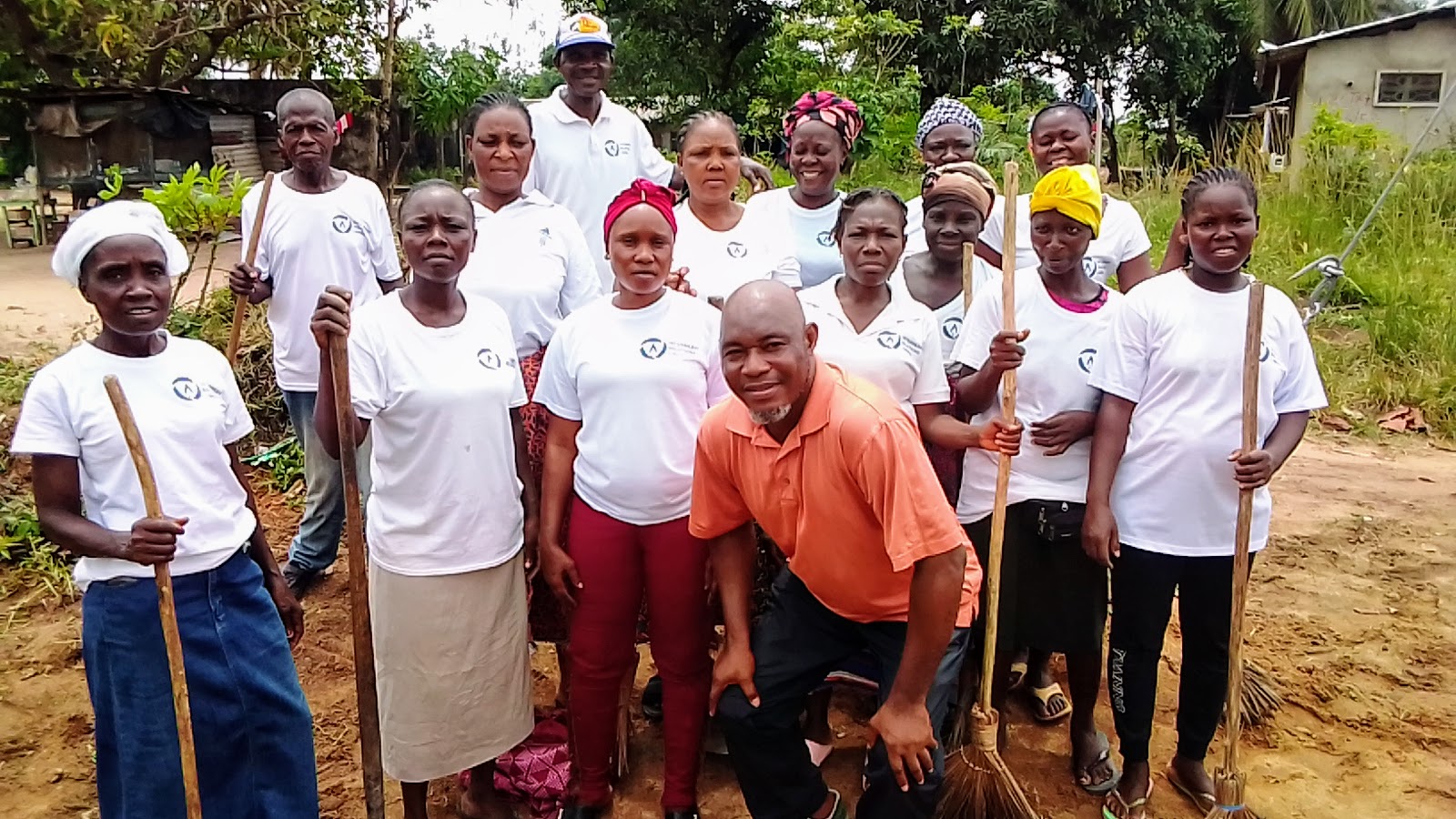By Ian Smith*
This article was originally published by Foodtank at this link.
The Movement for Community Led Development in Liberia (MCLD-Liberia) is helping farmers address challenges with home-grown solutions. Through these efforts, they are working to empower women and youth and to ensure that international development in their country is driven by communities.
In Liberia, the majority of the population depend on agriculture for their livelihoods, according to the International Trade Administration. But after the Liberian civil wars, which raged from 1989 to 2003, communities were fragmented and there were few farmers organizations left to advocate for fair incomes and political representation for smallholder farmers.
To restore community bonds and increase farmers’ collective power, MCLD-Liberia hosts convening sessions to bring together local farmers. There, they share knowledge about storing produce, accessing micro-finance, and getting better prices for their products.
These training sessions also act as forums for farmers to discuss and address problems in their communities. In two different instances, farmers recognized that there are systemic challenges for women and youth when it comes to owning farmland.
Farmers in Montserrado and Margibi counties decided to address these inequalities by donating some of their land, providing a communally managed plot for widows, women, and youth to work.
Empowering women is a principal goal for MCLD-Liberia, and for the global Movement more generally. “The Liberian legal system does not guarantee women’s rights, and even if it did, Liberian society’s perception about women hardly affords them the opportunity to enjoy their rights,” Jude Nwachukwu, founder of MCLD-Liberia, tells Food Tank.
According to the United Nations, women in Liberia own far less land than men and have less access to financial services. For women who are employed in agriculture, more than half (56.8 percent) are not paid for their work. As a result, 85 percent of female-headed households are in a state of moderate to severe food insecurity.
A lack of participatory democracy is partly to blame for gender inequity in Liberia, according to Freedom House. They report that adequate local governance is still being developed following the end of the civil wars. And customary law, like patrilineal land agreements which passes land ownership down along the male line, still reigns in rural areas.
The wars also resulted in a loss of community bonds. “Jude started with this recognition that in his community there was no farmers association, and that the MCLD looked like a framework to get one going,” John Coonrod, Co-Founder and Global Coordinator for MCLD, tells Food Tank.
Coonrod and a few others make up the secretariat for the MCLD, but there are no headquarters for the Movement. Rather, the MCLD is a global network of networks, made up of 1,500 community based organizations (CBOs), more than 70 international non-governmental organizations (NGOs), and 17 National Associations.
The Movement was publicly founded in 2015 at the signing of the Sustainable Development Goals (SDGs). National Associations of the movement are formed by individuals and organizations that come together to make community development more effective and democratic in their country.
In 2020, Nwachukwu heard about a movement gaining traction worldwide which was redistributing power in international development away from donors and towards communities. So in 2021, he collaborated with NGOs around the country and founded MCLD-Liberia to make development projects in Liberia more sustainable and people-centered.
Since the end of the civil wars, World Bank data shows that multilateral institutions like the World Bank and bilateral donors like the U.S. have spent over US$12 billion in total official aid to Liberia. Still, Liberia is the 11th poorest nation in the world in terms of GDP and 7th from the bottom in terms of hunger, according to the 2021 Global Hunger Index.
Nwachukwu believes that many traditional aid and agricultural development projects fail because they are created and implemented by outsiders. “Our mission is to end hunger in Liberia. But we cannot end hunger, and we cannot have sustainable development, without the community leading the charge,” Nwachukwu tells Food Tank. “We need to allow community members to be the pilots in order for projects to be sustainable and effective.”
* About the Author

Ian Muir Smith is a research and writing fellow at Food Tank. While earning their B.A. in International Studies from Fordham University, Ian learned from organic farmers in peri-urban South Africa, worked at the International Fund for Agricultural Development (United Nations), and lived with smallholder farmers on Mfangano Island, Kenya. Ian’s fieldwork in Kenya identified unique ways that rural agriculturalists are using digital technologies to mobilize capital from around the world and direct their own agricultural development. Ian’s main areas of advocacy are food sovereignty, indigenous and regenerative agriculture, and decolonial alternatives to development.


